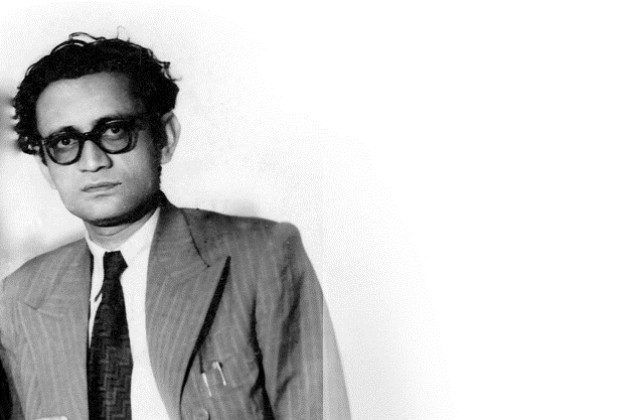You walk into the cinema to learn about the crests and troughs of the life of a legendary and notoriously controversial writer and you come out somehow transformed, armed with the knowledge of what it means to be human, what it feels like to be helpless when you’re at odds, at war with the world.
Manto looks unsparingly at a fragile and insecure man who dared to pen his inner most secrets and desires, passions and emotions, and his need to find an outlet to unleash his inner conflagration, the outrageous fire, to confront and to go at war with the world.
Manto could have been filmed just as another stereotypical biopic. In fact, Saadat Hasan Manto’s life had all the sumptuous ingredients of a dark and troubled life that most writers and artists have, and which are often the subjects of traditional biopics. However, it is the grandness of its ambition and scope, its boldness of vision, and its bravery in defying the traditional ideals of movie-making that make Manto an exceptional precedent for future films to come.
Inventive in its portrayal of the supremely popular writer’s life, it even manages to free itself from the customary bounds of reality that most biopics adhere to. This is evident in how the movie incorporated Manto’s vivid stories into the depiction of the events of his life. The parallel stories and his real life experiences give us a kaleidoscopic view into the true life of the writer. Through these fantasy riddled stories that deal with subjects as provocative and wide-ranging as rape, prostitution, and sexual desires, and Sarmad Khoosat’s moving and exemplary performance as Manto, one really gets a vivid sense of who Manto was as a man.
In Manto’s own talented hands and in his exotic prose, his stories become larger than life, and though, in this movie, they are not depicted as profoundly, each of them manages, quite successfully if not triumphantly, to gather small details and somehow humanise the gory story of Manto.
However, it just isn’t the compelling story that makes this movie so extraordinary. It is Sarmad’s performance, fuelled by the almost perfect supporting cast that pulls you into this film with a powerful gravitational force. Sarmad, the protagonist as well as the director of the film, manages to take the story of a writer and spin it into a tale of loss, grief and failure, the story of how much one wants to do in their life and it materialises and limns the regrets that we will each have someday of not being able to do much, much more.
The supporting cast packs an eclectic mix of masters and new comers. It mingles the virtuoso of veterans (Sania Saeed, Arjumand Rahim, Sawera Nadeem, Mishi Khan, Faisal Qureshi) with the dazzling verve of the younger generation (Saba Qamar, Mahira Khan, Azfar Rehman, Danyal Adam Khan) and uses the multifaceted talents of each of these brilliant actors in their own fortes to create a cast without whom the movie would have lacked it’s depth and emotional range.
Sarmad might have also deliberately, and ironically, chosen Mohammad Hanif, the best known contemporary Pakistani novelist, to make a brief yet notable guest appearance.
What makes Manto an amazing biopic is that it shows, alongside Manto’s bravura as a writer, his vulnerability as a human, particularly his obsession with alcohol and his helplessness in regard to his delusions. And, despite its accentuated, chilling, and unforgiving portrayal of violence and pain, which sometimes seems too determined to shock the viewers, the movie, as a whole, never comes off as overly maudlin and schmaltzy.
By the film’s end we are compelled to feel and experience Manto’s exhaustion and paroxysm of depression as he gradually slips away into oblivion. The movie deftly brings forth an array of raw emotions like anger, jealousy, desperation and alienation. As Manto chronicles the rise of a writer at the height of his powers, contrastingly, it also shows us the perilous demise of his social life and mental stability.
Also notable is the photography, particularly in the scenes that depict Manto’s stories, in which it becomes almost breath-taking. Even the subjects of these carefully chosen stories are intriguing, and the lessons and revelations are subtle. The overall effect is sublime.
Manto’s life was that of a legend but Sarmad’s performance shows you the very human and flawed world behind all of that. Exceptional is his vivid portrayal of Manto’s sufferings, fears and sadness, his haunting dreams and palpable fears.
Yet still, instead of just a movie about a writer atrociously struggling to find his voice, this is a story about the inner turmoil and struggle of an ordinary man, a dreamer, to reach his place of victory and that is what makes the story more relatable and meaningful.
It’s a biopic that immerses you into Manto’s life and makes it hard for us to distance ourselves from him and his marvellous characters, and for its ability to do just that I will give this movie a nine out of ten.
The movie, Manto, has transcended all bounds of expectations and has already earmarked a unique niche in the history of Pakistani cinema.
Manto: A legend untold
Manto’s life was that of a legend but Sarmad’s performance shows you the very human and flawed world behind all...



COMMENTS
Comments are moderated and generally will be posted if they are on-topic and not abusive.
For more information, please see our Comments FAQ